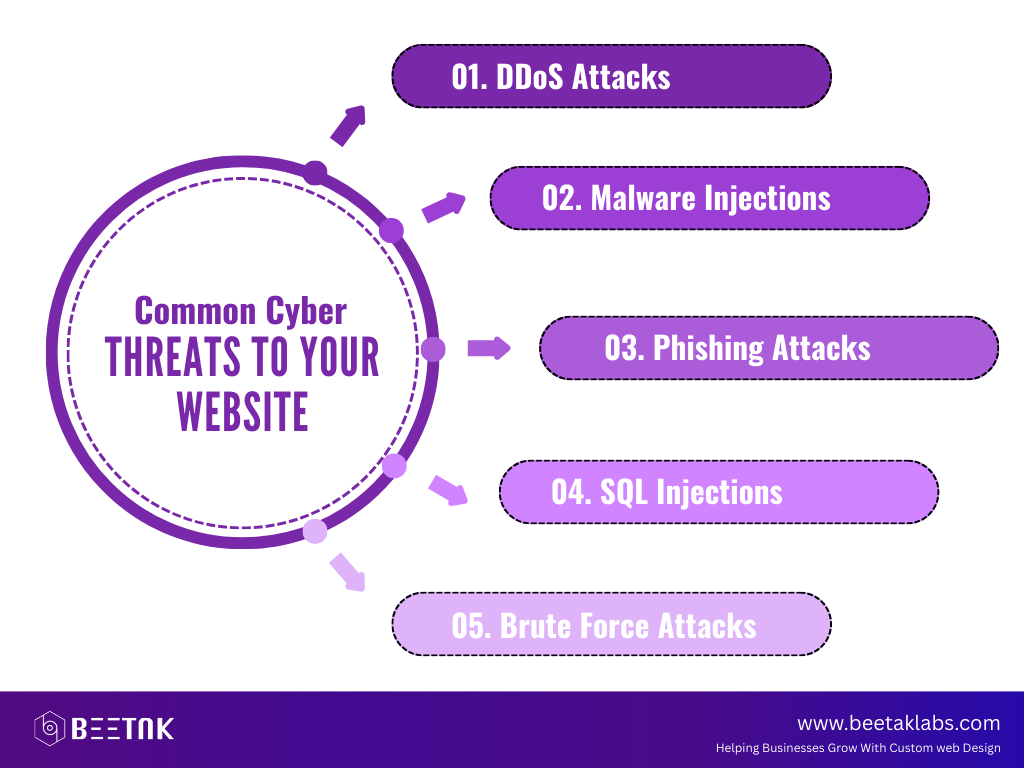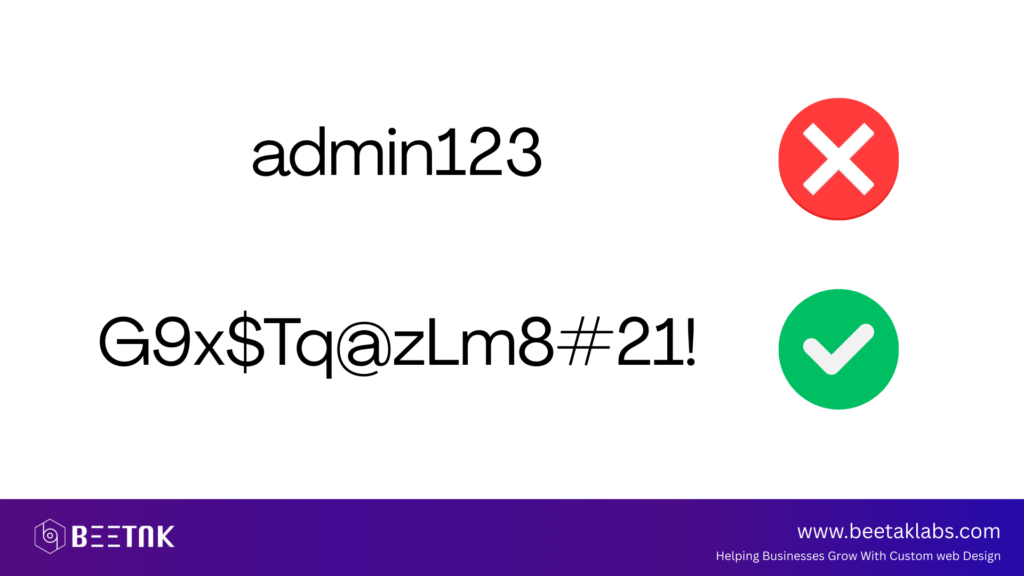Introduction
In an increasingly digital world, your website is the virtual front door of your business. It’s where customers interact, shop, and share sensitive data. But with rising cyber threats, your site could be at risk of hacking, data breaches, or even being taken offline—unless you prioritize website security.
Whether you’re a small business or a growing e-commerce platform, protecting your website is not optional—it’s essential for survival and trust. In this guide, we’ll explore why website security matters and how to shield your business from online threats.
The True Cost of Poor Website Security
You may think, “I’m a small business—cybercriminals won’t target me.” Unfortunately, that’s a common misconception. In fact, small businesses are often prime targets because they tend to invest less in cybersecurity.
When your website lacks proper protection, you risk:
- Data breaches exposing customer information
- Loss of customer trust and brand reputation
- Downtime that results in lost revenue
- Fines and legal consequences for failing to comply with data protection regulations (like GDPR)
One attack can cripple your business financially and destroy years of trust you’ve built with your audience.
Common Cyber Threats to Your Website
Understanding the threats is the first step toward effective defense. Here are the most common website-related cyber threats:

1. DDoS Attacks (Distributed Denial of Service)
These attacks flood your site with traffic to overwhelm and shut it down. While not stealing data, they cause major disruptions.
2. Malware Injections
Hackers insert malicious software into your site to steal information, redirect users, or infect visitors’ devices.
3. Phishing Attacks
Fake pages or emails trick users into sharing sensitive data like passwords or credit card numbers.
4. SQL Injections
Attackers exploit vulnerabilities in your website’s database to gain access to user data or even take full control.
5. Brute Force Attacks
These involve repeated login attempts until a password is guessed correctly—often targeting weak or default credentials.
How to Secure Your Website Effectively
Thankfully, there are proactive steps every website owner can take to protect their site—and their customers.
1. Use HTTPS Encryption
Secure your website with an SSL certificate. HTTPS not only encrypts data but also boosts your Google rankings. If your site still uses HTTP, it’s time to upgrade now.
2. Keep Software and Plugins Updated
Outdated plugins and CMS platforms like WordPress are easy targets. Always install updates as soon as they’re released to patch known vulnerabilities.
3. Use Strong Passwords and Two-Factor Authentication
Create complex, unique passwords for admin accounts, and enforce two-factor authentication to add an extra layer of protection.

4. Regularly Back Up Your Website
Automated daily backups are essential. If your site is compromised, a backup can restore everything quickly without data loss.
5. Install a Web Application Firewall (WAF)
A WAF filters malicious traffic and blocks suspicious activities before they reach your server. Services like Sucuri or Cloudflare offer this protection.
6. Scan Your Website Frequently
Use security scanners to check for vulnerabilities, malware, or unauthorized changes. Google Search Console and Sucuri SiteCheck are free tools to start with. You can run a quick malware and vulnerability scan using Sucuri SiteCheck, a free and reliable tool used by thousands of website owners.
Why Security Builds Trust and SEO
Google favors secure websites. Sites with HTTPS and no malware get better visibility in search results. Moreover, users are more likely to trust and interact with websites that look and feel secure.
Nothing will drive away a potential customer faster than a “Not Secure” warning in their browser—or worse, a hacked site.
Don’t Wait Until It’s Too Late
Website security isn’t just for big companies—it’s for everyone. The damage caused by cyberattacks can be devastating, especially for small and medium-sized businesses. By taking simple steps today, you can prevent major headaches tomorrow.
Make website security a core part of your business strategy. Not only does it protect your data and customers, but it also safeguards your brand’s future.
To learn more, check out these related posts:



